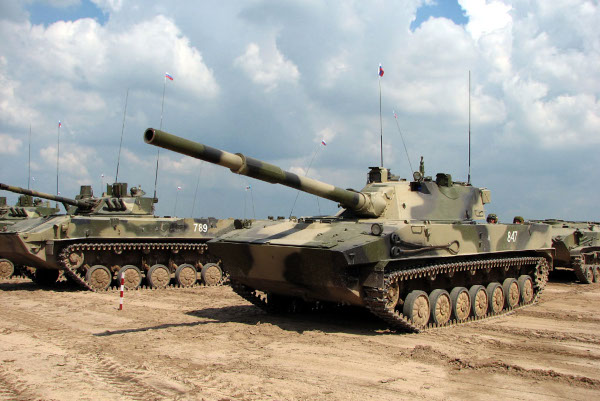NEW DELHI: The Army is now exploring the possibility of procuring 350 light tanks, which can also be transported by air, to augment its firepower in high-altitude areas in the backdrop of the continuing military confrontation with China in eastern Ladakh.
The Army on Thursday issued an initial Request for Information (RFI) to vendors for the procurement of 350 new-generation light tanks, less than 25-tonne in weight, in a project under the “Make in India ethos” with requisite transfer of technology.
The Army had managed to deploy its heavier Russian-origin T-90S and T-72 main-battle tanks (which weigh between 40 to 50 tonne each) in eastern Ladakh, with some of them even being taken up the Rezang La-Rechin La heights in the Kailash Range to the south of Pangong Tso in end-August last year.
Since then, there has been troop disengagement between India and China on both sides of the Pangong Tso in February. But the People’s Liberation Army has thereafter refused to complete the stalled disengagement at Gogra, Hot Springs and Demchok, let alone stop blocking Indian patrols in the strategically-located Depsang Plains, as was reported by TOI earlier.
Officers said a need has now been felt for procurement of “much more manoeuvrable” and “operationally flexible” light tanks, with adequate firepower, in harsh mountainous terrains. “There have been some proposals to procure light tanks in the past but they did not take off,” said an officer.
“This is just an initial RFI, for which responses have to be submitted by mid-June, to explore the various platforms available now. If the project actually takes off, it will take several years for the 350 tanks to be inducted in phases,” he added.
The RFI specifies that the combat weight of the light tank should not exceed 25-tonne and its “physical dimensions should not impede its transportability by rail, road, air and water”.
With a two to three-member crew and thermal night-fighting capabilities, the light tanks should have weapons for anti-aircraft and ground roles, including “smart munitions with gun tube-launched anti-tank guided missiles”.
“In the foreseeable operational scenario, the need for an agile and mobile light platform, with adequate firepower, protection, surveillance and communication capabilities is increasingly finding its operational relevance,” said the RFI.
The light tanks must have the versatility to execute operations in varying terrain conditions, across diverse threats and equipment profiles of adversaries, as well as should have “rapid overseas deployment capability”.
The RFI also sought to know whether the vendors could offer other features such as anti-drone capability, UAV jammers and some AI (artificial intelligence) technologies.
Source: ToI
You may also like
-
IAF Aircraft Set Course For Exercise Eastern Bridge VII At Oman
-
IAF Set To Host The Indian Defence Aviation Exposition-II At Jodhpur
-
Defence Secretary to co-chair 5th India-Philippines Joint Defence Cooperation Committee meeting in Manila
-
Simultaneous Launch Of ‘malpe And Mulki’, Fourth And Fifth Ships Of Asw Swc (Csl) Project
-
Aatmanirbharta in Defence: MoD signs Contract with HAL for 240 AL-31FP Aero Engines for Su-30MKI Aircraft
